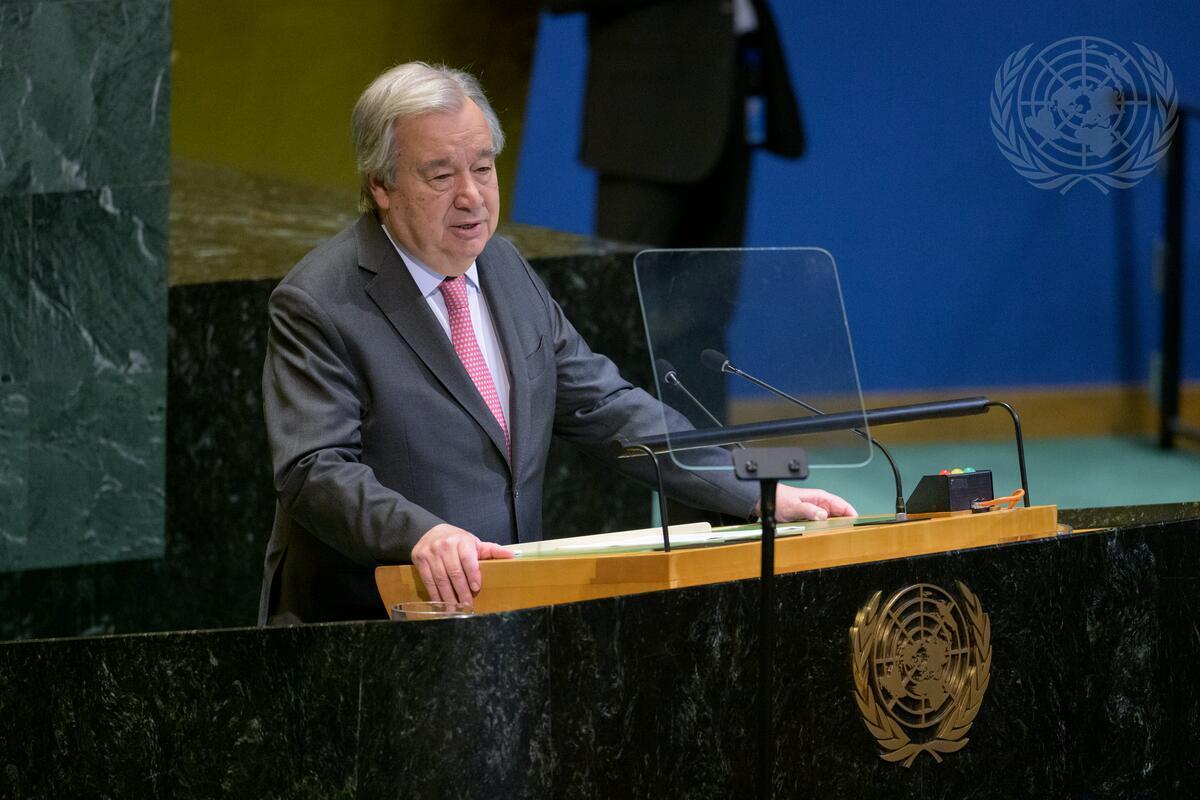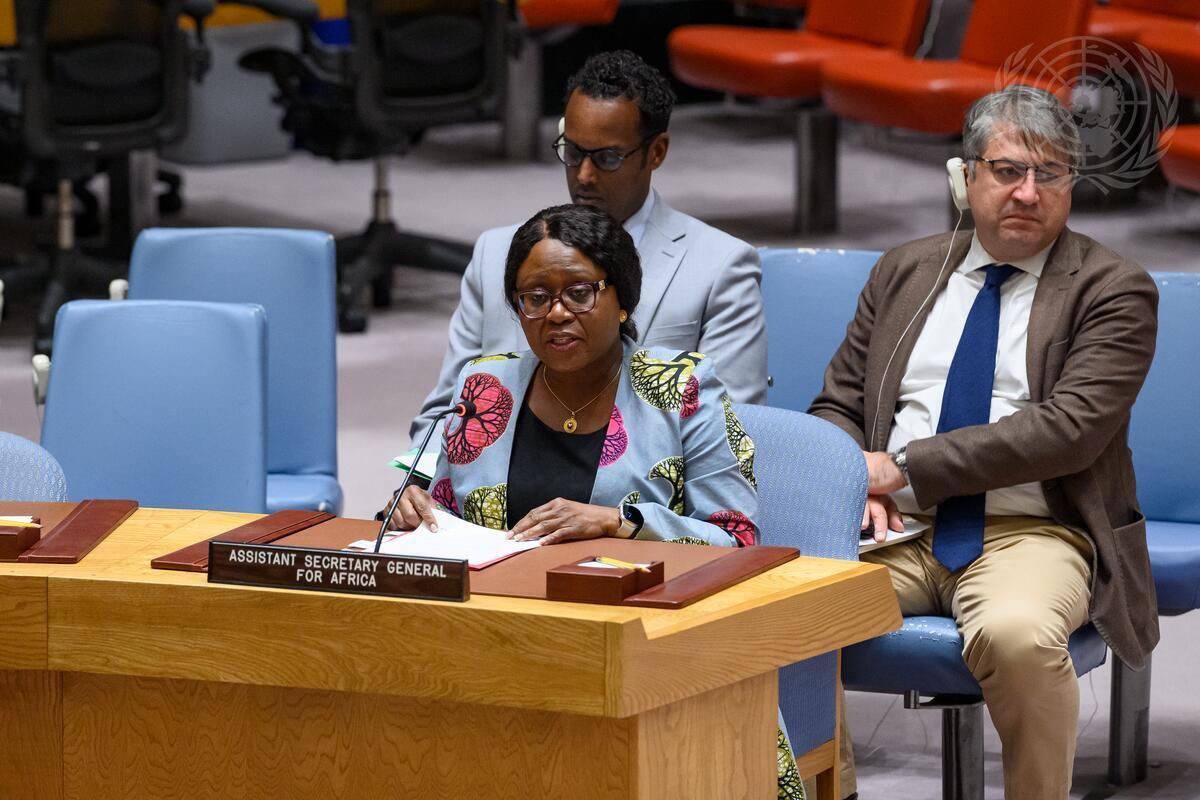52 local participants joined a two-day workshop this week in El Fasher, Darfur, to discuss civilian protection issues including access to justice, enhancing rule of law and human rights, securing the current farming season, building trust between law enforcement institutions and communities, and response to Gender-Based Violence (GBV). The workshop was organized by UNITAMS’s Police Advisory Unit and Regional Office at Darfur and engaged representatives of the Sudanese Police, civil society organizations including Women Protection Networks, native administration leaders, youth groups from El Fasher town and internally displaced persons from surrounding camps.
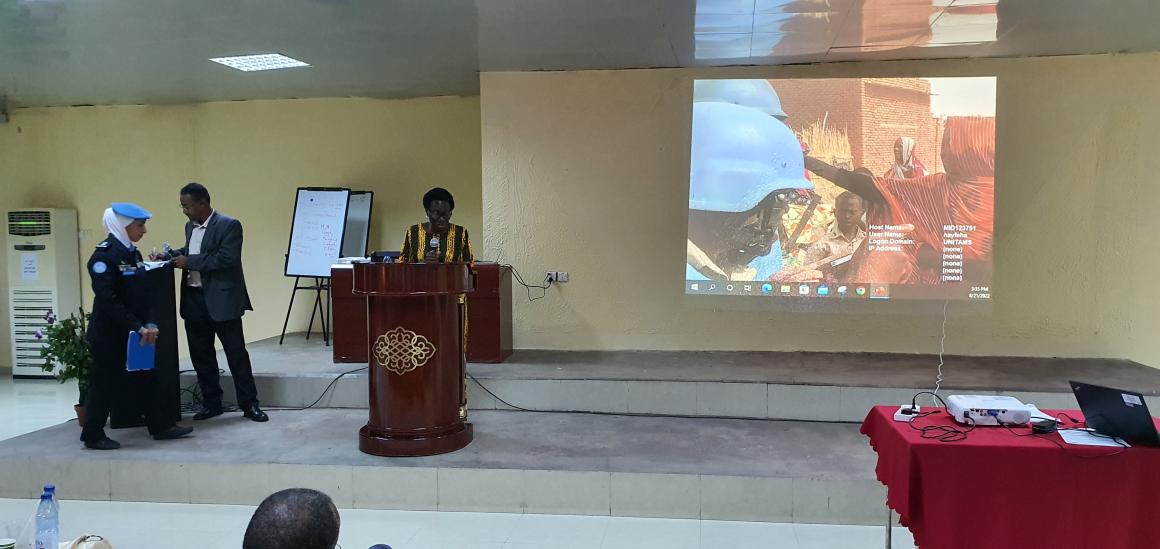
“This workshop comes as part of UNITAMS’s continued efforts to foster relations between the Sudanese Police and the Communities as a way of enhancing civilian protection to ensure durable peace, security and stability in the Darfur region,” said Abimbola Alina, the Head of UNITAMS Regional Office in Darfur, “The broad participation aims at providing a platform where the local community can directly engage local authorities to voice their needs, priorities, and concerns. We will continue to provide spaces like this to encourage all stakeholders to engage in a meaningful dialogue to resolve disputes when they arise as a way of mitigating communal violence.”
Participants stressed the importance of empowering civil society organizations, building the capacity of the police and law enforcement institutions, curbing the circulation of weapons, and using dialogue to build trust between the communities and the security and judicial authorities as an essential step towards enhancing the protection of civilians and human rights. Participants shared their experiences to demonstrate the value of organizing at the community level to address civilian protection gaps.
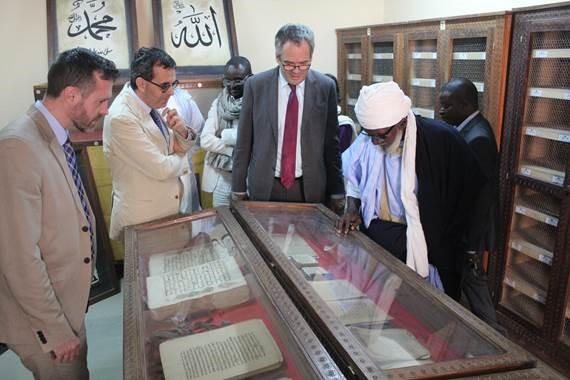
“Following attacks on Kutum town in 2003, north of Al Fasher, I was forced to flee with my children, relatives and many of the town’s residents,” said Nafisa Mohamed, one of the participants who had lost her husband at the beginning of the war in Darfur, “We walked for 18 days to reach El Fasher and became displaced persons since then.”
She recalled women from her community were subjected to many forms of violence upon their displacement including sexual violence while fetching water and collecting firewood. With the support of the former peacekeeping mission in Darfur, Ms. Mohamed and 14 other women activists formed the “Women Protection Networks” in 2012 and started providing victims of domestic violence with legal and psychological support in collaboration with relevant groups and entities.
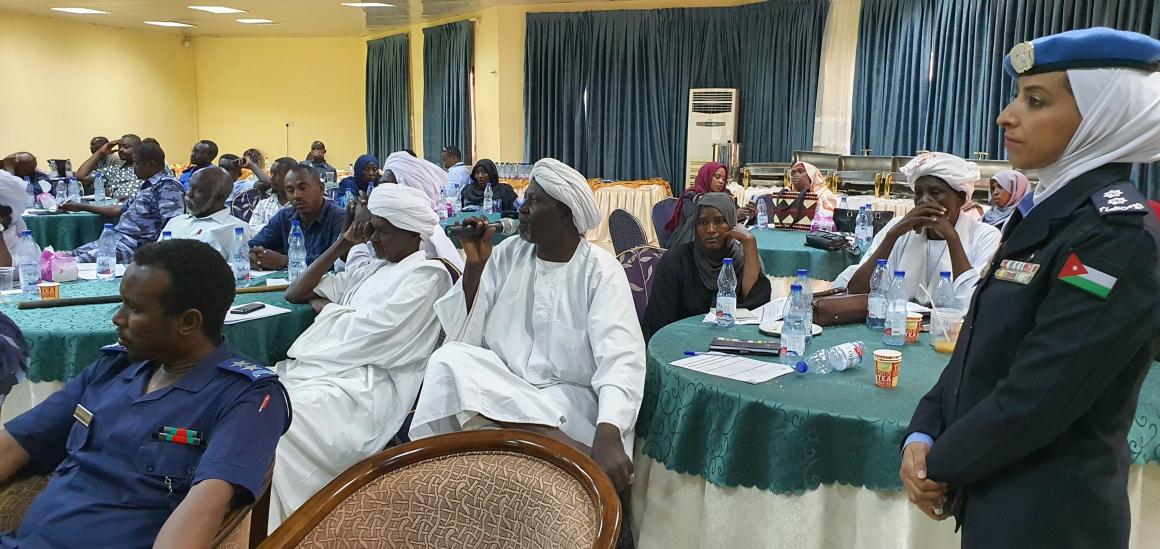
Participants made several recommendations to support civilian protection at the community level such as the promotion of the principles of human rights, rule of law, peaceful coexistence and equal citizenship, including by incorporating these principles in school curricula. They emphasized the importance of combating misinformation and hate speech and welcomed more workshops that provide opportunities for dialogue between the community and local authorities. Participants further highlighted the importance of providing training and employment opportunities to the youth as an important step towards maintaining communal peace and stability. They also stressed the need to support the return of Internally Displaced Persons (IDPs) and refugees to their original home areas.
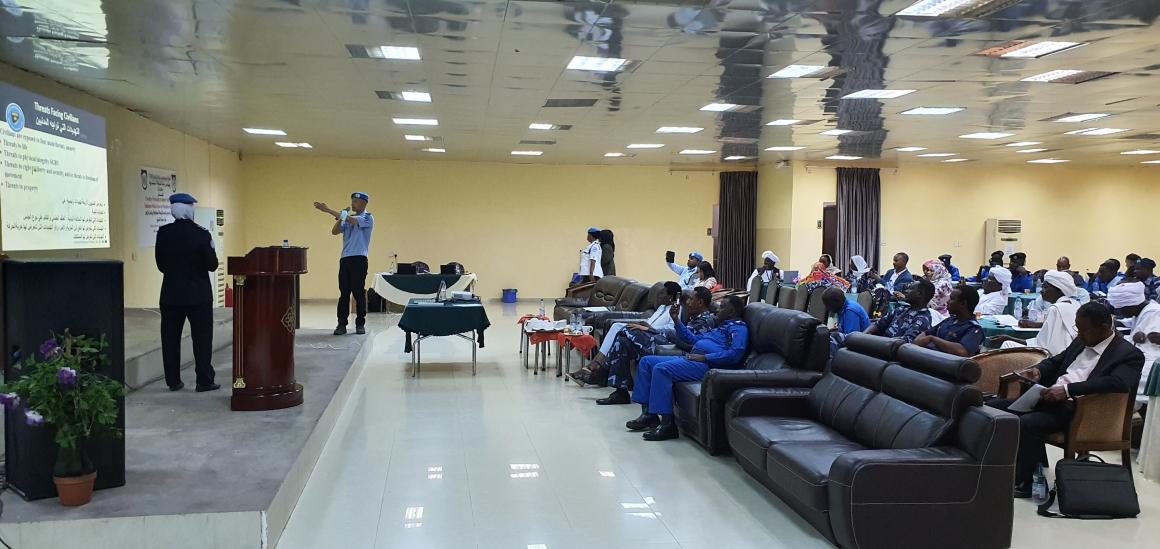
“Through engagements such as this workshop, we hope to provide law enforcement institutions and community members with the knowledge, skill and space that allow for confidence building and enhance a true partnership among them to ensure sustainable peace and stability,” said Liu Cao, a Police Advisor in UNITAMS.



